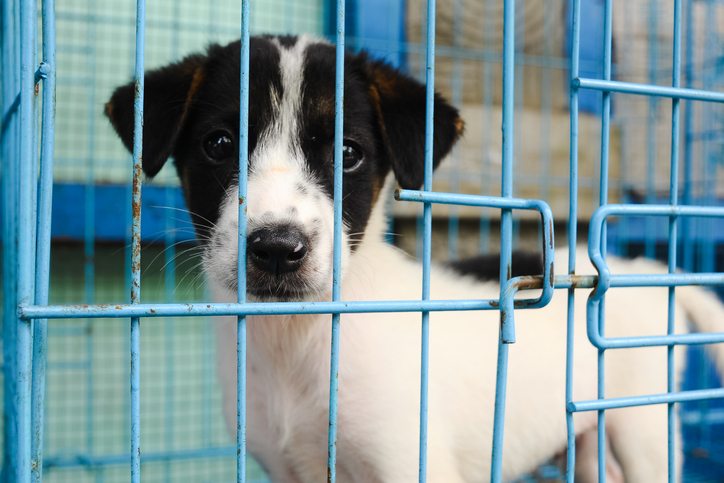
If you Google, “buying a pet from a pet store” or something similar, you will be faced with a barrage of search results with titles like, “Ten Reasons Not to Buy Your Pet at the Pet Store” or “Why adopting is more humane than buying.” There is actually a webpage called, www.nopetstorepuppies.com. In my search, I also noticed that the concern was almost exclusively over dogs, and made little mention of other animals. I want to give the pet store the benefit of the doubt, so I was going to begin with circumstances in which buying from a pet store might be an acceptable option. But then I couldn’t find a good reason, except the possibility of falling in love with a pet while you were really just shopping for pet food. Love at first sight happens and far be it from me to force you choose between principles and puppy love.
Pet Stores that Sell Puppies
In order to get the most accurate possible understanding, I visited the HumaneSociety.org. They then linked me to a webpage called “Pet Store Doublespeak.” Here’s an overview of some truths about pet stores:
- The puppies will almost always come from puppy mills (which is a topic for another post, but know that puppy mills are a bad idea). If they claim the dogs came from a “breeder,” that’s not a lie. Anyone who introduces two dogs to make a baby is a breeder. Reputable breeders are very selective about where they place their puppies.
- Even “USDA-inspected facilities” can be easily considered a puppy mill. Just because they consider themselves a “business” doesn’t mean they’re a good one. The USDA has a reputation for not revoking licenses or even fining businesses in violation. In fact, in 2010 the Inspector General released a “scathing report” of the lax oversight of dog dealers in the US under the Animal Welfare Act.
- You may be told that your pet comes with a health guarantee. Read this carefully, as they are designed to protect the store, not you, often requiring you to actually return your sick puppy to get a refund. They will use the “health certificate” as proof that the puppy was healthy when he left the store. Which brings us to the next point.
- A health certificate is required. It only means that the puppy has had a brief “wellness” check by a vet. This includes no testing, and no blood work, missing parasites, genetic disorders or other diseases common in puppies like Giardia or Brucellosis, which are passable to humans. So, if the puppy “appears” healthy, voila! A certificate of good health.
Your best bet is a rescue, or a reputable breeder, which may require an interview and some traveling. And it’s our instinct to even want to rescue a puppy from a pet store or mill, but consider the risks and possible stress involved. You want to enjoy your experience and enjoy your puppy.
What do you think now of pet stores that sell puppies?
Image: iStockPhoto












[…] right prior to the buyer pursuing legal action. If you have purchased a puppy from a breeder or pet store, and the puppy becomes ill and/or needs medical attention, first contact the seller to discuss the […]
[…] many people think a pet store is a good place to get a puppy (The Truth about Pet Stores) ; however, the truth is that many puppies in pet stores are from puppy mills. Do not be fooled […]